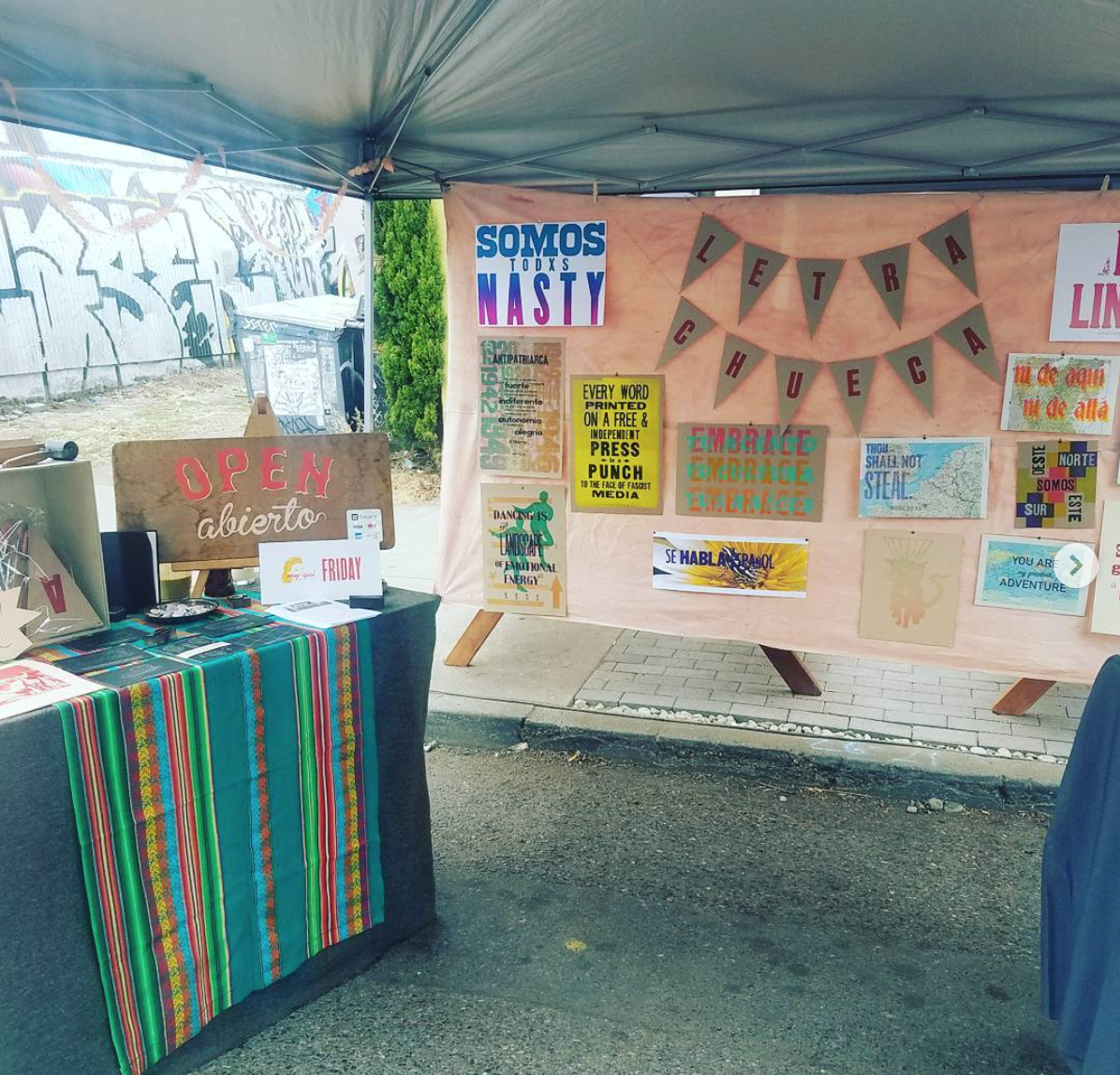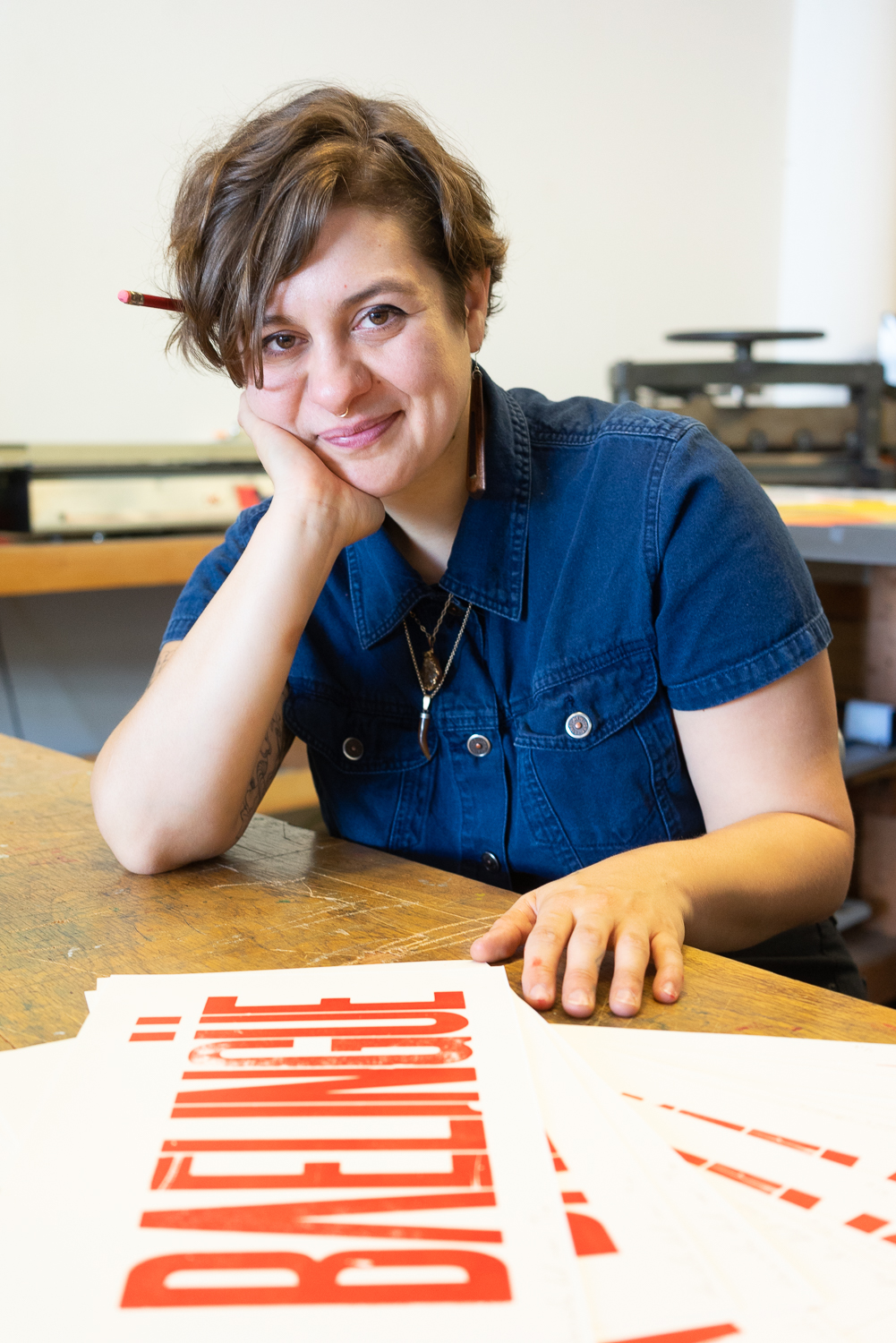
What mediums do you work in?
Primarily ink on paper. Sometimes book forms + publishing, thread, and glue.
What is your work about?
I incorporate social practice into the print process, which historically has lent itself to this medium. More specifically, I create work for other queer latinx mutts. Representation in media is empowering for members of minority communities, and making media is doubly so.
Tell us about your history with the IPRC.
A good friend of mine from the print community invited me to volunteer in 2016. I loved being an open-hours steward, because I worked in the letterpress studio helping others on their projects and troubleshooting problems. It led to opportunities for teaching including Intro to Letterpress Class, which I’ve taught for more than a year now. I’ve also had the pleasure of teaching private workshops, leading tours, and now am teaching in the very new and exciting Art Book track for the Certificate Program.
What/who inspires you?
Type, form + function, social + racial justice, my language, la vida callejera, local print culture, my heritage, the Southern U.S., hand-painted restaurant signs, conceptual minimalism, glitter.
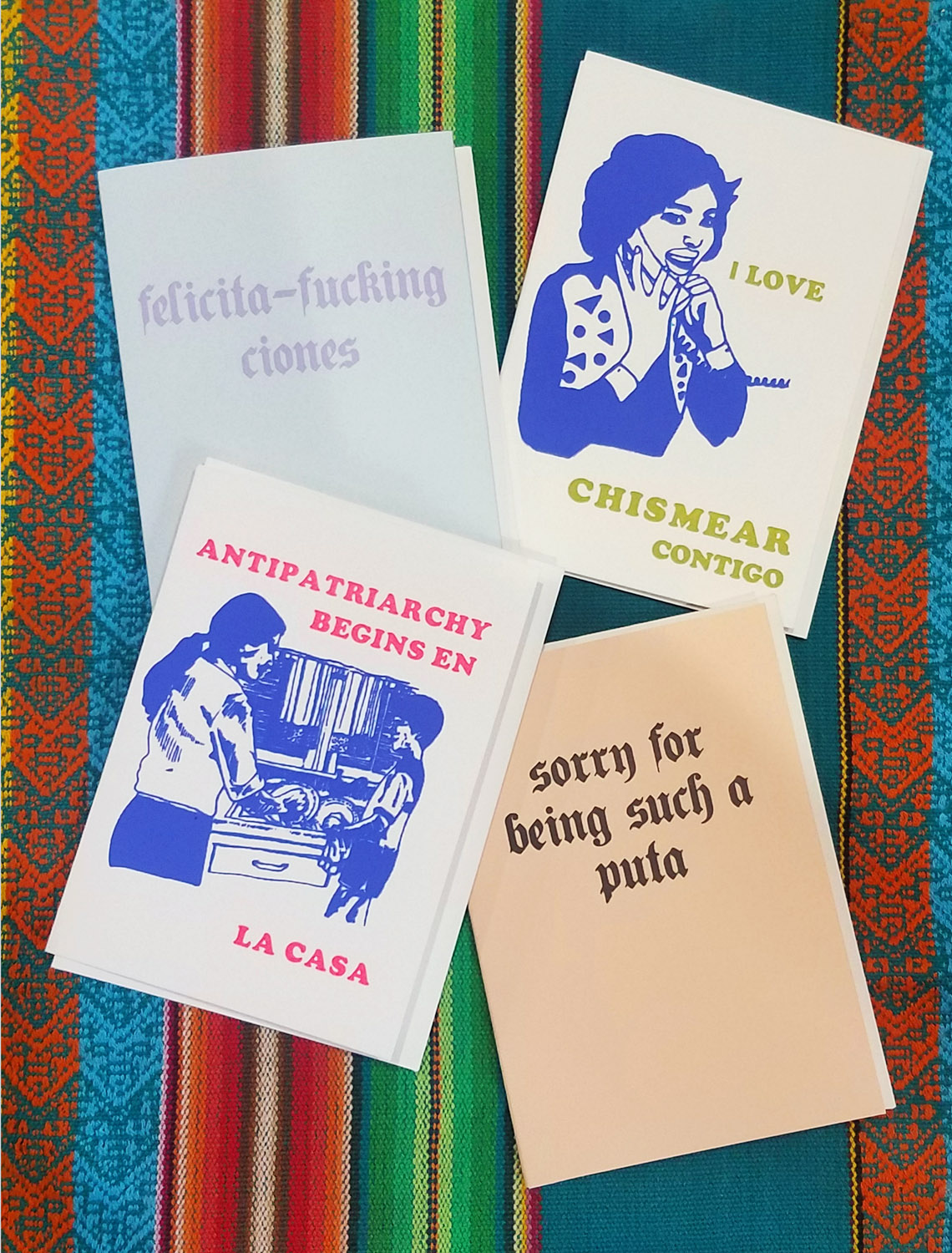
What are the most important steps in your artmaking process?
Getting started. The rest follows.
What do you do when you’re procrastinating?
Start other projects.
Do you have a favorite word?
Yes because language is alive, and ever-evolving especially cuando hablas más que sólo un idioma. Amo words in Spanglish y especialmente las que son inventadas para un sólo momento: pari meaning party, liz taylor meaning listo, ready. Anything así
If you could collaborate on a project with an artist living or dead, who would you most want to work with?
My crush right now is Cecilia Vicuña.
Why is the IPRC important to you? What do you like about creating your art in the IPRC studio?
It’s accessible and there is an amazing collection of tools. With four different types of print processes/presses available, anything can be created here. Having such a rich variety is important to me as a printer, because problem solving is a large part of the process. If something isn’t working, there’s always another approach to try and the tools to do it. There’s also a social component – community lives here. Folks are always organizing projects, events, and are curious to know what you are working on and how they can help.
What does “Independent” in IPRC mean to you? Is there a personal significance?
Absolutely. It means self-generated. If you are setting type by hand – a process that takes hours, sometimes days – you find what is important for you to say.
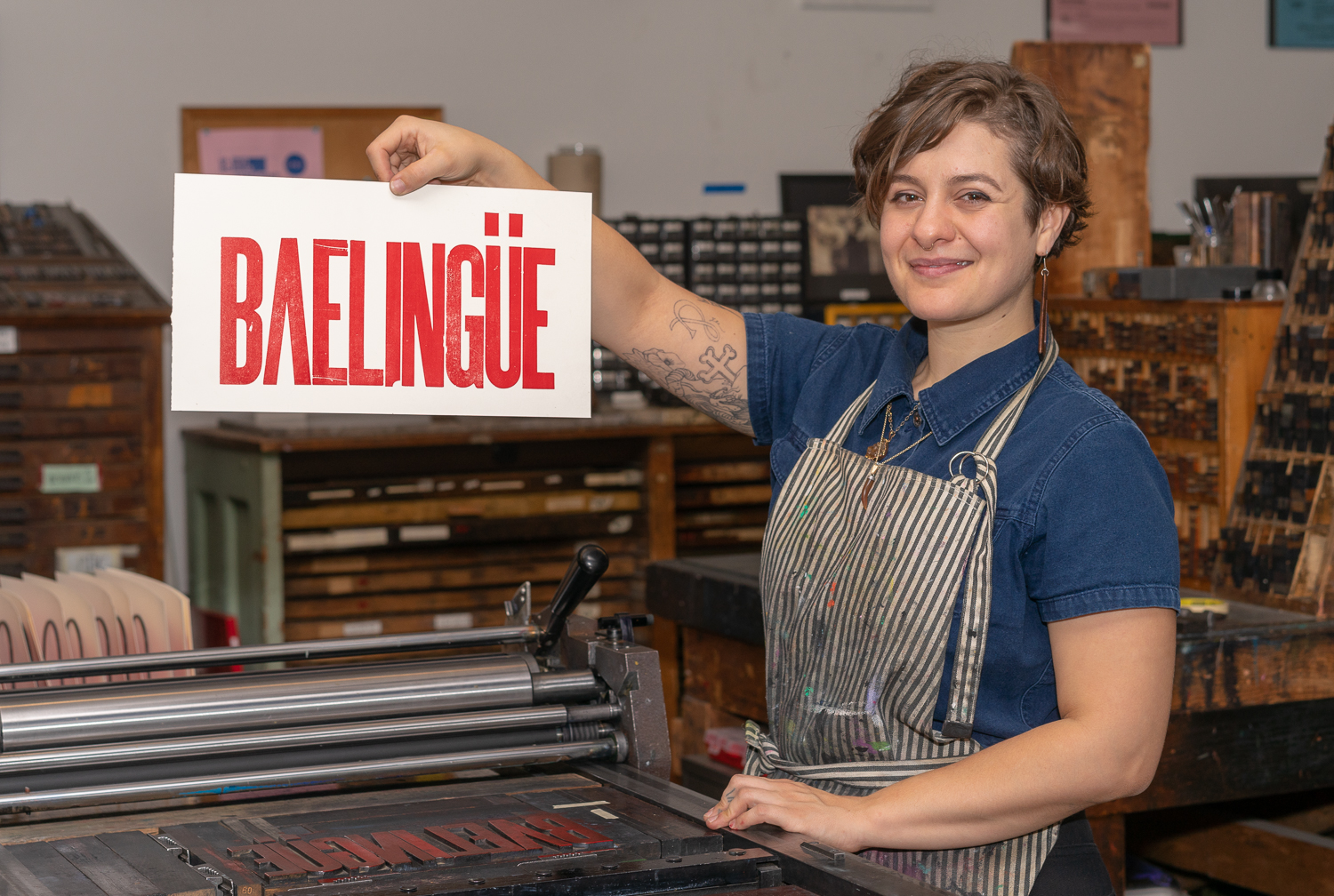
How often do you use the the IPRC studio?
Weekly.
What is your biggest failure/learning you’ve done while working at IPRC?
Printing has taught me that setbacks are not failures. When you encounter a wall in printing, that moment goes into your well of experience and you get to draw from it the next time you’re having trouble. What else have I learned? Different processes are suited to different outcomes and I love using silkscreen + riso when I can. I’ve also honed my teaching skills here. IPRC has helped me discover that I love to teach.
Why is the IPRC important to Portland?
There is no other public community center of its kind. IPRC has been around for 20 years, survived the desolate hipster Portlandia-fueled urban displacement, and is now more vibrant than I’ve ever seen it. The IPRC is important to Portland for the same reason printing is important to the digital age. Drowning in a sea of data, the most resounding and meaningful messages are the ones that are self-made, that are scary to articulate, that trip across their own smudges and unplanned imperfections, and that are from the heart clamoring to be given luz into this world.
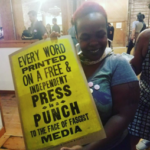
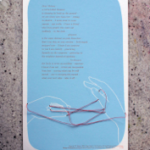
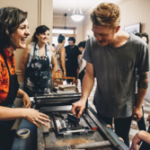
In what ways would you like to see the IPRC grow?
Grow physically to allow for a more spacious layout or even artists’ studios. And definitely develop enough of a reach, so that we can start introduction 2nd level classes!
Daniela del Mar is a transdisciplinary artist, educator, and organizer. Criadx por a mixed multi-generational immigrant family in the South, su trabajo revolves around fronteras culturales, translation + meaningfulness, y práctica social. En 2013, co-fundó Letra Chueca Press, the only imprenta bilingüe en Portland that makes representational work for a Spanish-speaking cultura that supersedes borders. Otros gustos de ellx incluyen seeing the ocean at every oportunidad, napping with su gato negro, and starting pero infrequently finishing renovation proyectos en su casa en St. Johns. Letra Chueca / Crooked Letter Press IG: @letrachuecapress
All images are used by permission of the artist. Interview by Ella Stewart. Photos of artist by Laura Glazer.

